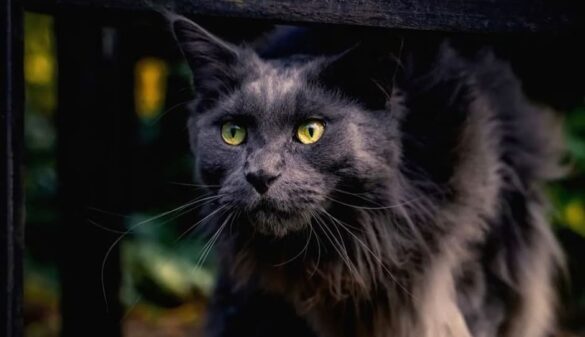Maine Coons are known to be generally healthy, resilient and sturdy cats. But, like all cat breeds, Maine Coon cats may be susceptible to certain health issues. Common Maine Coon health issues include hypertrophic cardiomyopathy (HCM), hip dysplasia, spinal muscular atrophy (SMA), dental issues, obesity, and kidney disease.
Key Takeaways
- Explore common health problems: Learn about prevalent issues like HCM, hip dysplasia, SMA and other health problems that can impact Maine Coon cats.
- Early detection matters: Recognize signs and symptoms early to seek timely veterinary care for better outcomes.
- Preventive care is vital: Implement proactive measures to reduce the risk of health problems and promote overall well-being.
- Manage health challenges: Discover strategies for supporting Maine Coon cats facing health issues, enhancing their quality of life.
- Regular vet visits are essential: Prioritize routine check-ups and screenings to ensure optimal health and wellness.
- Responsible breeding makes a difference: Understanding genetics and advocating for responsible breeding practices result in minimizing hereditary ailments.
- Empathy and compassionate care: Embrace emotional support and a holistic approach to enhance the cat-owner bond.
- Empowerment through knowledge: Gain insights to make informed decisions, empowering you as a caring and attentive Maine Coon cat owner.

That does not mean that all purebred Maine Coons will necessarily suffer one or more of the common health diseases. However, being informed about what they are prone to developing helps you take good care of your feline companion and helps prevent any health issues.
Purebred cat breeds are more prone to specific hereditary health issues because of selective breeding. Selective breeding might lead to the development of harmful genetic mutations and genetic health problems. As a result, Maine Coons, like all purebred felines, are more likely to suffer from hereditary health problems than mixed-breed animals.

If you are considering getting a Maine Coon cat, you already care for one (or more than one), or you are a professional breeder, it is crucial to learn the health issues that can affect Maine Coons as a breed and learn to recognise the symptoms. Even if the cat is not 100% purebred, knowing their genetic history will help predict and prevent possible health problems.
In this article, we will look into the common Maine Coon health problems and help Maine Coon owners recognise the symptoms and prevent and manage existing issues assuring their cat’s needs are met in achieving well-being and happiness.
Common Health Problems in Maine Coon Cats
| Health Issue | Description |
|---|---|
| Hypertrophic Cardiomyopathy (HCM) | HCM is a common hereditary heart condition in Maine Coon cats, characterized by the thickening of the heart muscle, leading to reduced heart function or blood clot formation. Regular cardiac screening is crucial for early detection. |
| Hip Dysplasia | Hip dysplasia is a genetic condition where the hip joint doesn’t fit snugly in the hip socket, causing pain, difficulty in movement and decreased mobility. Weight management and joint supplements can help alleviate discomfort. |
| Spinal Muscular Atrophy (SMA) | SMA is a genetic disorder affecting the spinal cord’s motor neurons, leading to muscle weakness and wasting, potentially impacting the ability to move normally. Physical therapy and supportive care can improve the cat’s mobility and quality of life. |
| Dental Issues | Maine Coon cats may be prone to dental problems like periodontal disease and gingivitis, which can cause pain, difficulty eating, and other health complications. Regular dental check-ups and dental hygiene are essential to prevent dental issues and maintain oral health. |
| Obesity | Due to their large size and hearty appetite, Maine Coon cats can be prone to obesity which can lead to various serious health issues. Proper portion control, a balanced diet, and regular exercise are essential to manage weight and prevent health complications. |
| Kidney Disease | Chronic kidney disease (CKD) can be more prevalent in older Maine Coon cats. This disease impacts kidney function and may lead to dehydration, weight loss and other complications. Monitoring kidney function through regular check-ups and providing a kidney-friendly diet can help manage the condition. |
| Spinal and Joint Issues | Maine Coon cats’ size and activity levels may make them susceptible to spinal and joint issues. Providing a cat-friendly environment and avoiding high-impact activities can help minimize strain on their joints. |
| Stomatitis | Stomatitis is an inflammation of the mouth and gums in Maine Coon cats, causing pain, difficulty eating, and oral discomfort. Maintaining good oral hygiene by regularly brushing their teeth, providing dental treats or toys, and scheduling routine dental check-ups with a veterinarian can help prevent this common disease. |
| Allergies | Maine Coon cats can experience allergies, leading to skin irritation, itching, and other allergic reactions due to various environmental factors or certain foods. Keeping their environment clean, using hypoallergenic cat litter, and avoiding exposure to potential allergens will minimize allergic reactions. |
| Periodontal disease | Periodontal disease is common in Maine Coon cats, leading to gum inflammation, tooth loss, and potential systemic health issues if left untreated. Regular dental care routine that includes brushing their teeth, offering dental treats or toys, and professional dental cleanings with a veterinarian should alleviate the symptoms and prevent complications. |
| Urinary Tract Infections | UTIs are common in cats and can cause pain, difficulty urinating, and even blockages of the urethra. A balanced and moisture-rich diet, clean and fresh water, proper litter box hygiene, and specialised urinary health cat food under the guidance of a veterinarian are essential steps to minimising symptoms and healing. |
| Hearing Loss | Some Maine Coon cats may experience hearing loss due to genetic factors or age-related changes, affecting their ability to respond to auditory cues. Avoiding ear infections through regular cleaning and check-ups and monitoring their overall health for any signs of age-related hearing decline can help slow down the process. |
| Patellar Luxation | Patellar luxation occurs when the kneecap dislocates from its normal position, causing discomfort in Maine Coon cats. Focus on maintaining a healthy weight to reduce strain on joints, providing regular low-impact exercise, and consulting a veterinarian to monitor their joint health and detect any early signs of joint instability. |
Hypertrophic Cardiomyopathy (HCM)

HCM is a heart condition that causes the heart muscle to thicken abnormally and impair proper function, potentially leading to heart failure or blood clot formation. It is the most common heart disease in cats, and Maine Coons are one of the breeds most at risk for developing it.
The exact cause of HCM in cats is not fully understood, but it is most likely caused by genetic factors. Some genetic factors linked to HCM in cats include mutations in the genes that code for proteins involved in heart muscle contraction and relaxation.
The life expectancy of a Maine Coon cat with HCM can vary depending on several factors. These include the condition’s severity, treatment effectiveness, and the cat’s overall health. In general, cats with HCM diagnosed early and receiving aggressive treatment can live for several years. However, some cats may die suddenly, even with treatment.
Signs and Symptoms
The signs and symptoms of HCM in Maine Coon cats can vary depending on the severity of the condition. Some common signs include:
- Shortness of breath
- Rapid breathing
- Open-mouthed breathing
- Lethargy
- Loss of appetite
- Weight loss
- Collapse
- Coughing
- Sudden death
If you notice your Maine Coon breathing problems or any of the signs mentioned, it is important to take them to the vet for a diagnosis. HCM can be diagnosed with a physical exam, an electrocardiogram (ECG), and an echocardiogram (heart ultrasound).
Preventive Care
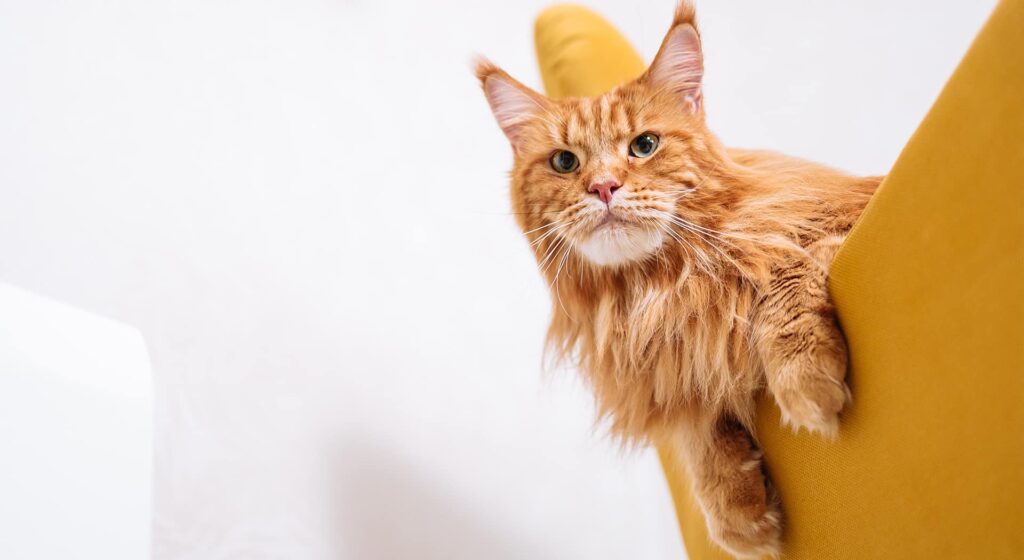
HCM can be detected in cats as early as 6 months of age, but it is more commonly diagnosed in cats between 2 and 7 years old. In some cases, HCM may not be diagnosed until later in life or even after the cat has died suddenly.
While HCM can’t always be prevented, regular veterinary check-ups, maintaining a healthy weight, and feeding a balanced diet can help manage the risk. Genetic screening of breeding cats can also aid in reducing the prevalence.
Veterinary guidance is crucial. Medications may be prescribed to manage heart function and blood clot risks. Regular monitoring and follow-up appointments are essential for adjusting treatment as needed. Given that this condition should be monitored regularly, the cost of the HCM tests can vary depending on the type and number of tests the veterinarian recommends.
How to Manage HCM in Maine Coon Cats
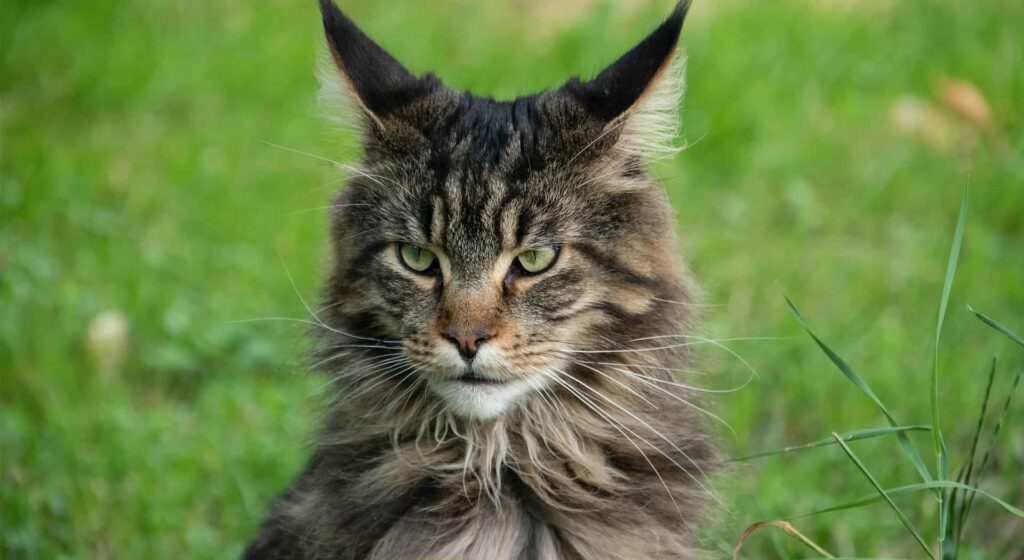
There is no cure for HCM, but there are treatments that can help manage the condition and improve the quality of life and lifespan of affected cats. These treatments may include:
- Medications to control heart rate and blood pressure
- A low-sodium diet
- Weight loss
- Regular exercise
- Surgery to remove thickened heart muscle
The best treatment for HCM is the one the veterinarian suggests, depending on the cat’s specific needs and the severity of the condition and symptoms. With proper treatment, many cats with HCM can live long and healthy lives. However, you should be aware of the risks of sudden death and have your cat’s condition monitored closely by your veterinarian.
Hip Dysplasia
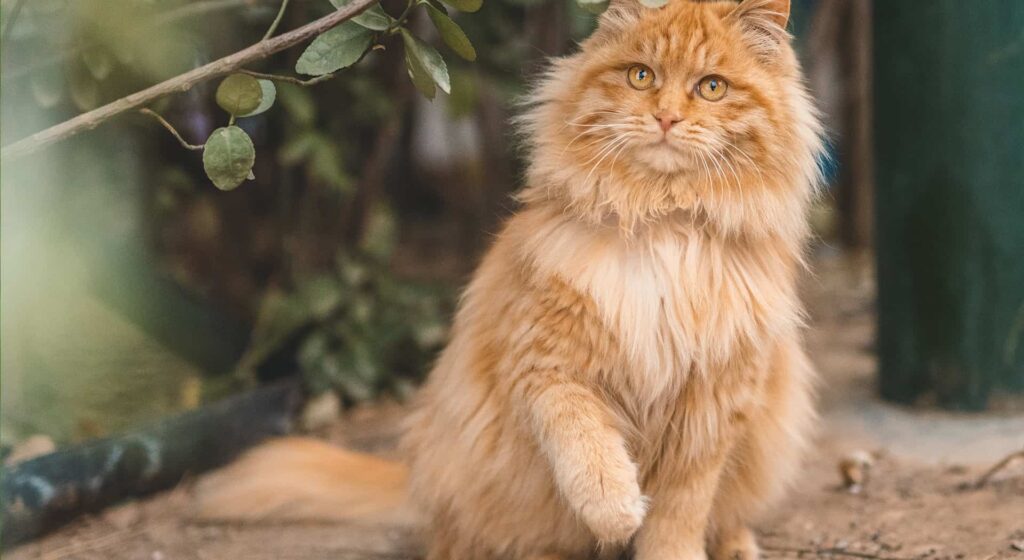
Hip dysplasia is a joint disorder where the hip joint doesn’t develop properly, causing discomfort and reduced mobility in Maine Coon cats. This condition can lead to lameness, pain and arthritis, and it’s the most common Maine Coon disease. Commonly, Maine Coon back leg problems are caused by hip dysplasia, and the symptoms are terrifying for the owners.
Signs and Symptoms
- Pain: Cats with hip dysplasia may show signs of pain when moving, such as limping or crying aloud when trying to jump.
- Decreased activity: The pain and difficulty in performing desired moves can cause the cat to become lethargic and reluctant to do any physical movement or activity.
- Lameness: Cats with hip dysplasia may also develop lameness in one or both hind legs.
- Arthritis: Over time, hip dysplasia can lead to arthritis, which can cause further pain and stiffness.
Preventive Care
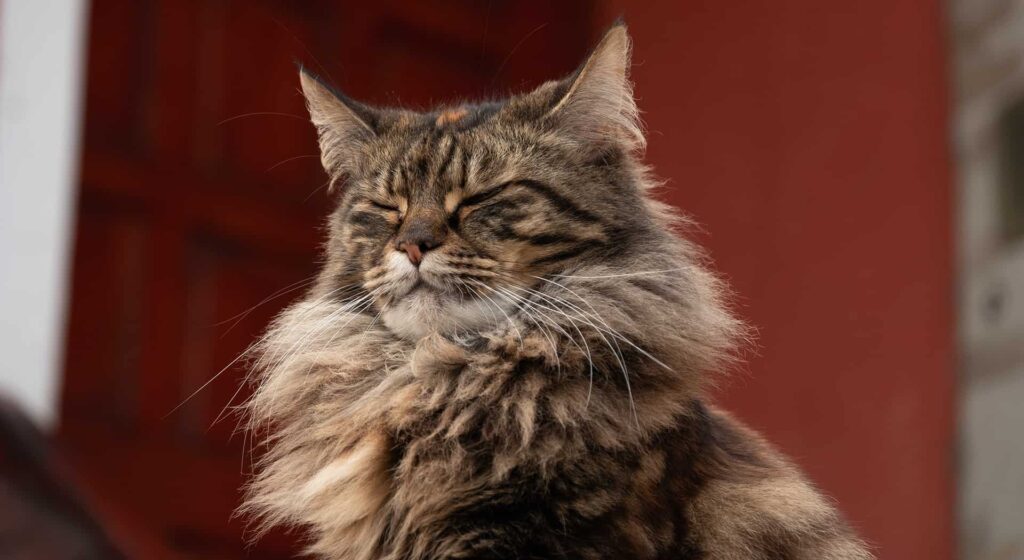
Preventing hip dysplasia may not always be possible due to its genetic component, but some things can be done to reduce the risk:
- Maintaining healthy weight: Obesity can put extra strain on the hip joints and make hip dysplasia worse.
- Provide your cat with low-impact exercise: Exercise helps strengthen the muscles around the hip joints and support them.
- Avoid jumping and other high-impact activities: Jumping and other high-impact activities can strain the hip joints and worsen hip dysplasia.
How to Manage Hip Dysplasia in Maine Coon Cats
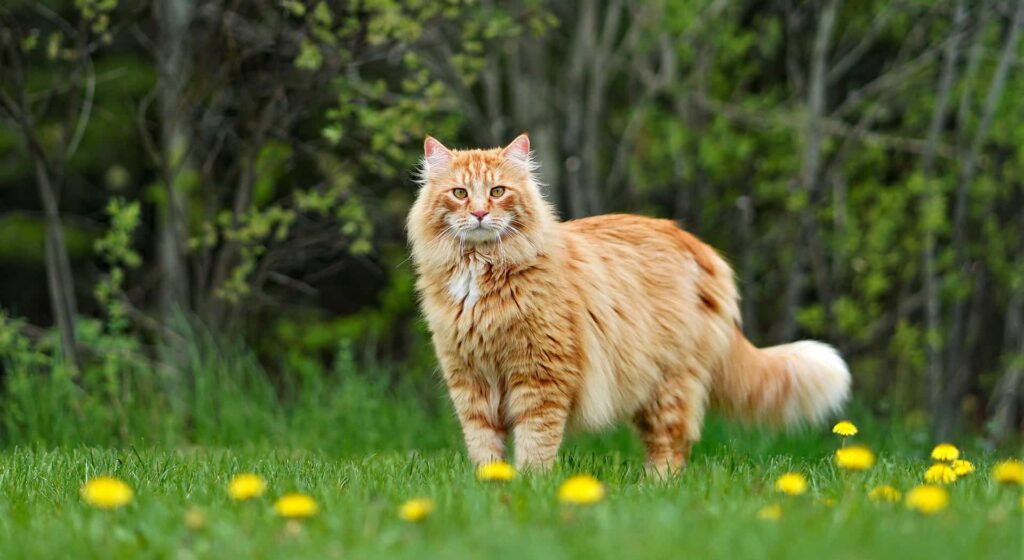
There are a number of things a veterinarian can recommend to manage this condition and improve your cat’s quality of life:
- Medication and Supplements can help reduce pain and inflammation in cats with hip dysplasia. Joint supplements support joint health and slow down the progress of the disease.
- Surgery may be the option in some cases. Surgery can involve repairing or replacing the hip joint with an artificial joint.
- Physical therapy helps strengthen the muscles around the hip joints and improve your cat’s range of motion.
- Weight loss: If your cat is overweight, lowering body mass can help reduce the strain on the hip joints.
Regular veterinarian check-ups and monitoring are essential for adjusting the treatment plan as needed. The proper treatment plan can help your cat live a long and happy life with hip dysplasia.
Spinal Muscular Atrophy (SMA)
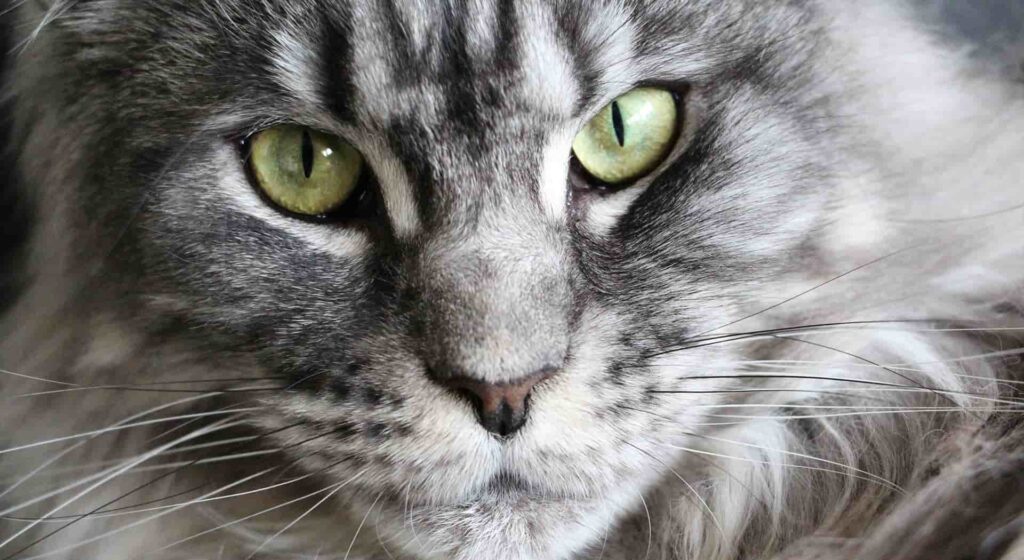
SMA is a genetic disorder which affects the motor neurons in the cat’s spinal cord leading to muscle weakness and wasting in Maine Coon cats. It is caused by a mutation in the SMN1 gene, which codes for a protein responsible for developing and maintaining motor neurons.
SMA and the above-mentioned hip dysplasia can both cause the inability to use the rare legs due to pain or, in more severe cases, paralysis.
Signs and Symptoms
- Weakness
- Muscle atrophy
- Trembling
- Difficulty walking or jumping
- Limited mobility and paralysis
Preventive Care
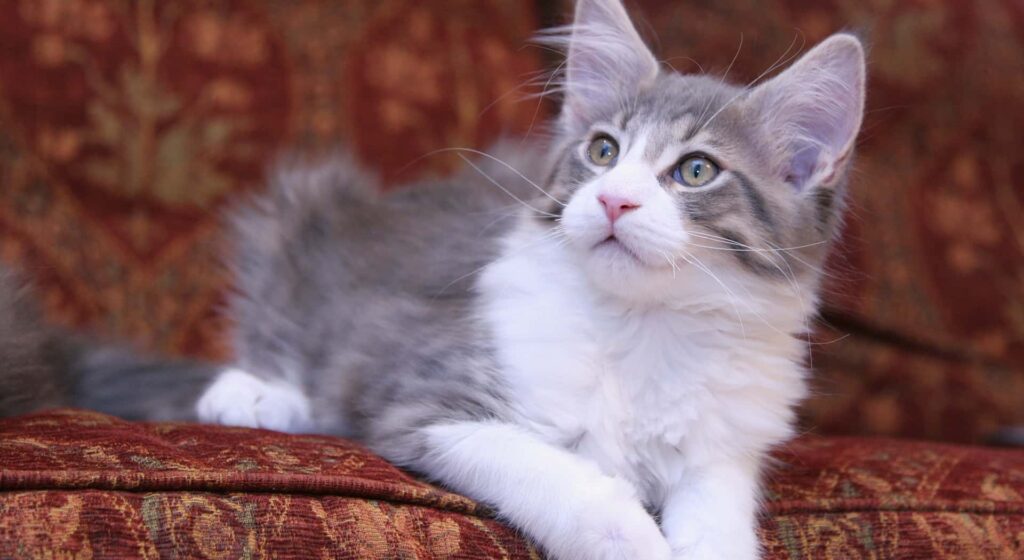
SMA is a hereditary condition, so preventing it involves selective breeding practices. Responsible breeders can perform genetic testing to identify carriers and avoid breeding them.
There is a DNA test available to determine if your Maine Coon is a carrier of SMA. If your cat is a carrier of the SMA gene, they can still pass it on to their offspring, even if they do not show any signs of the condition.
How to Manage SMA in Maine Coon Cats
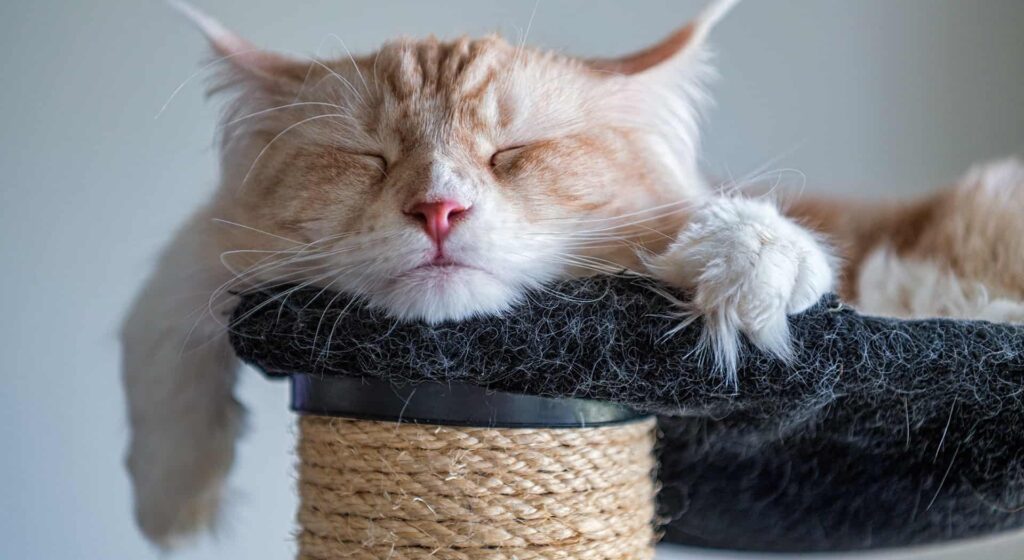
There is currently no cure for SMA. Managing the condition involves providing a supportive and comfortable environment for the cat as well as:
- Medication can help improve muscle strength and function in cats with SMA.
- Physical therapy helps strengthen the muscles and improve the range of motion in cats with SMA.
- Hydrotherapy can help to improve muscle strength and function in cats with SMA.
- Supportive care: Feeding your cat a soft diet, providing them with a litter box that is easy to access, and helping them to get around the house.
With proper care, many cats with SMA can live long and happy lives. Consultation with a veterinarian is essential for monitoring the cat’s health, managing pain, and ensuring a good quality of life.
Dental Issues
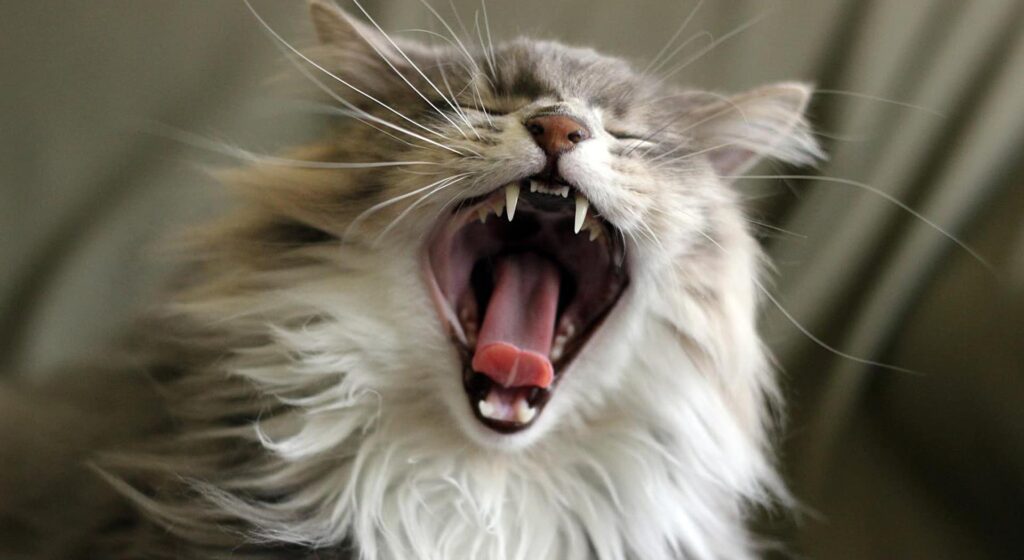
Maine Coon cats, like other breeds, can be prone to dental problems due to their unique oral anatomy, including large teeth and a predisposition to plaque buildup. These issues can occur due to different factors such as genetics, diet, dental care, and overall health. Common dental issues in Maine Coon cats can include:
- Stomatitis: Inflammation of the mouth’s soft tissues, causing pain, bad breath, and difficulty eating.
- Periodontal Disease: Advanced gum disease that can cause tooth loss and affect overall health due to bacterial infections.
- Dental Tartar and Plaque: Accumulation of bacteria and food particles on teeth, leading to the formation of hard tartar and plaque, which contribute to various dental problems.
- Tooth Resorption: A condition where a cat’s body absorbs the tooth structure, often leading to pain and tooth loss.
- Gingivitis: Inflammation of the gums due to plaque and tartar buildup. It can lead to redness, swelling, and discomfort.
Signs and Symptoms
- Bad Breath
- Red or Swollen Gums
- Drooling
- Difficulty Eating
- Pawing at the Mouth
- Visible Tartar or Plaque
- Loose or Missing Teeth
- Blood in Saliva
- Weight Loss
Preventive Care
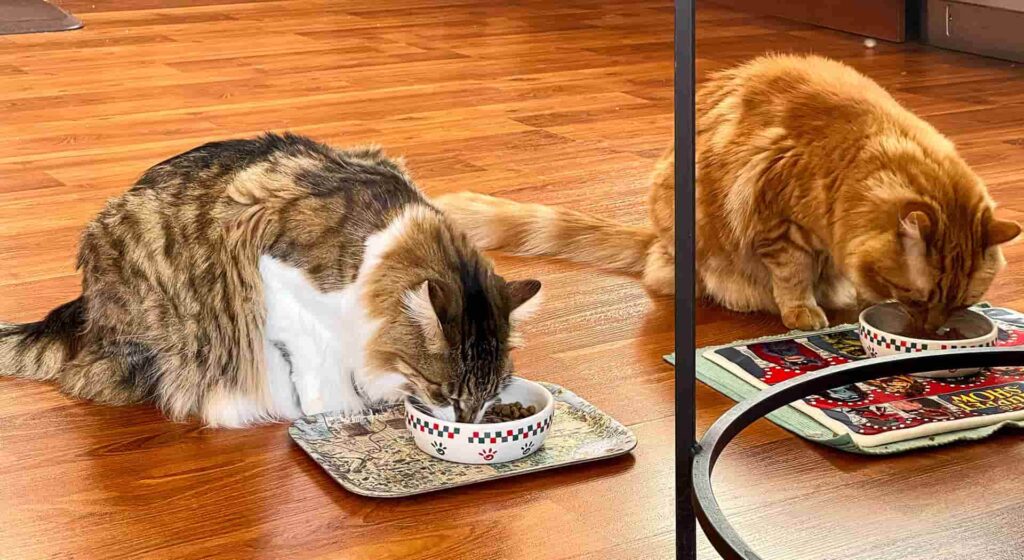
Regular dental care is of utmost importance to prevent dental issues and maintain optimal Maine Coon health. Regularly brushing the cat’s teeth, providing dental treats/toys, and scheduling professional cleanings can help prevent these issues
How to Manage Dental Problems in Maine Coon Cats
Your veterinarian will create a treatment plan for your cat’s specific condition. This may involve a combination of medications, such as anti-inflammatory drugs, pain relief, and antibiotics, to manage inflammation and infection. Moreover, proper oral care can help manage symptoms. Your veterinarian may recommend an antibacterial or antiseptic rinse for your cat’s mouth.
Transition your cat to a soft or moist food diet, as this can be less abrasive on the inflamed tissues in the mouth. Consult your veterinarian for dietary recommendations.
Obesity
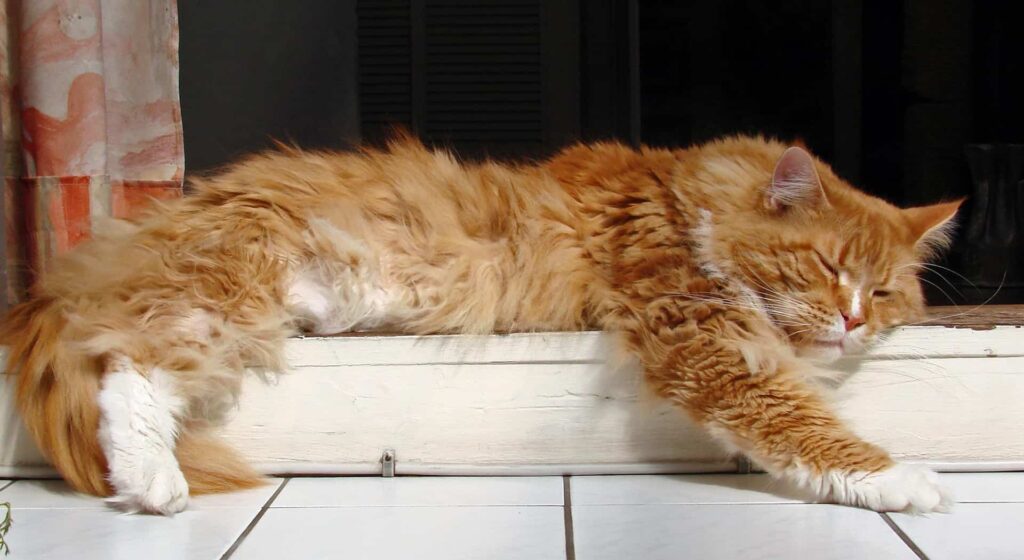
Obesity is a common problem in Maine Coon cats. Due to their large size and playful nature, they require a lot of food, and Maine Coon owners can often help them overeat. Moreover, as they are large and covered with fluffy fur, the excessive weight gain can sometimes go unnoticed until it becomes a serious health concern. Overeating and lack of exercise are the two main causes, while it can also result from medical conditions and genetics.
Signs and Symptoms
- Evident weight gain
- Reduced activity
- Difficulty breathing
- Difficulty grooming
Preventive Care
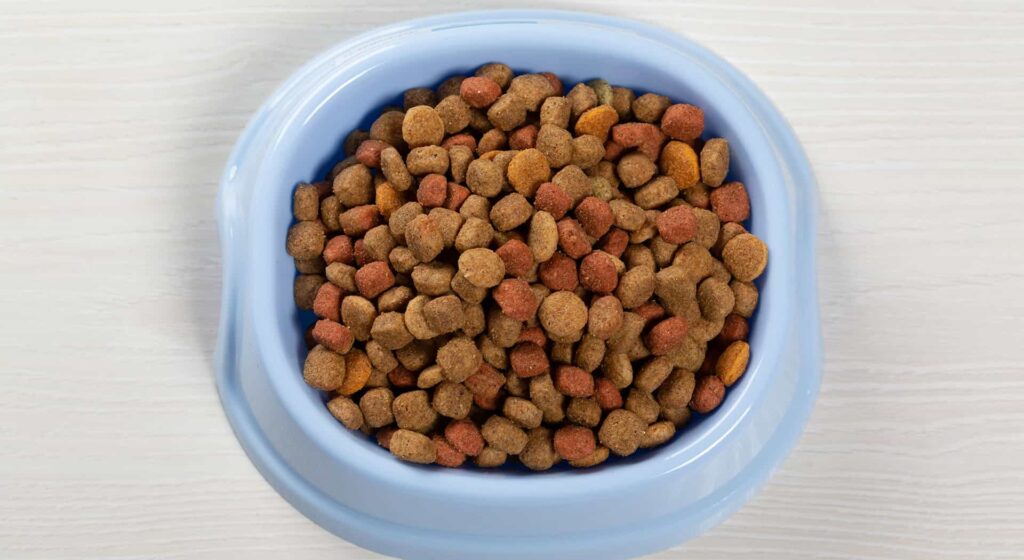
Making sure the cat has a regular eating schedule and consumes a healthy and well-balanced diet is essential. Additionally, the cat should be stimulated for physical activity daily. Maine Coons love to play, so it should be easy to keep them in shape by offering toys and opportunities to play and explore.
How to Manage Existing Obesity in Maine Coons
Proper Maine Coon cat care is crucial when dealing with obesity. Therefore, if the cat is already obese, gradual weight loss is recommended under veterinary supervision. This might involve adjusting the diet, providing appropriate exercise, and monitoring progress regularly. A veterinarian can help create a weight management plan tailored to the cat’s needs.
Kidney Disease
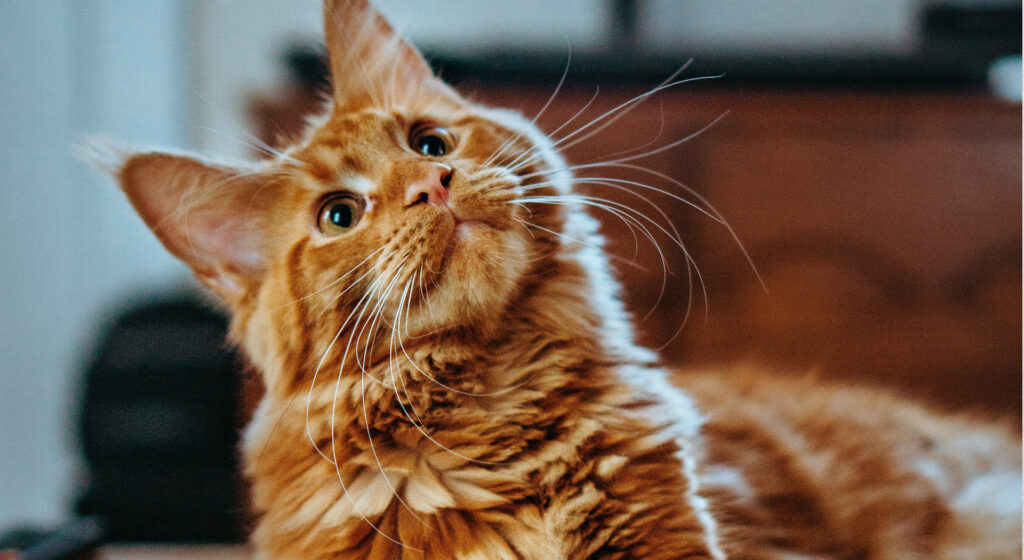
Kidney disease involves the gradual deterioration of kidney function and can affect Maine Coon cats. Kidney failure, particularly chronic kidney disease (CKD), is a relatively common issue in older cats, including Maine Coon cats. Genetics can play a role, as well as diet and lifestyle.
Signs and Symptoms
- Increased thirst and urination
- Weight loss
- Decreased appetite
- Vomiting
- Lethargy
- Dull coat
- Blood in the urine
Preventive Care
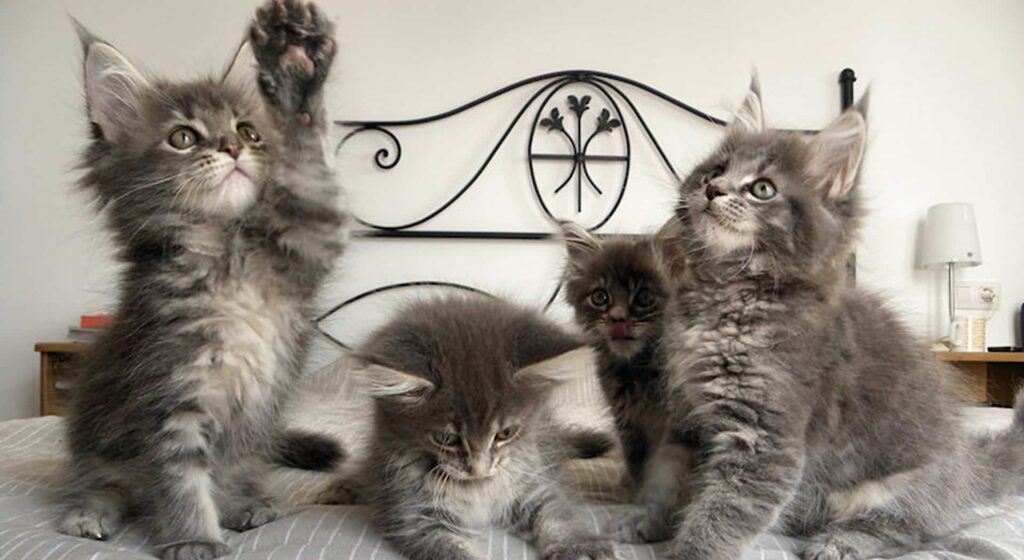
Preventing kidney disease involves providing a balanced and healthy diet appropriate for the cat’s age, weight, and activity level. It is also important to ensure the cat drinks plenty of water. Avoid exposure to toxins from food and chemicals around the house. Regular veterinary check-ups are, of course, mandatory for preventing and early detection of kidney problems.
How to Manage Kidney Disease in Maine Coon Cats
If kidney disease is diagnosed, treatment focuses on managing symptoms, maintaining hydration, and adjusting the diet to reduce stress on the kidneys. Supportive care might include fluids, medications, and a special kidney-friendly diet in advanced cases. Cats with kidney disease can experience pain. Your veterinarian can prescribe medication to help manage your cat’s pain.
Spinal and Joint Issues
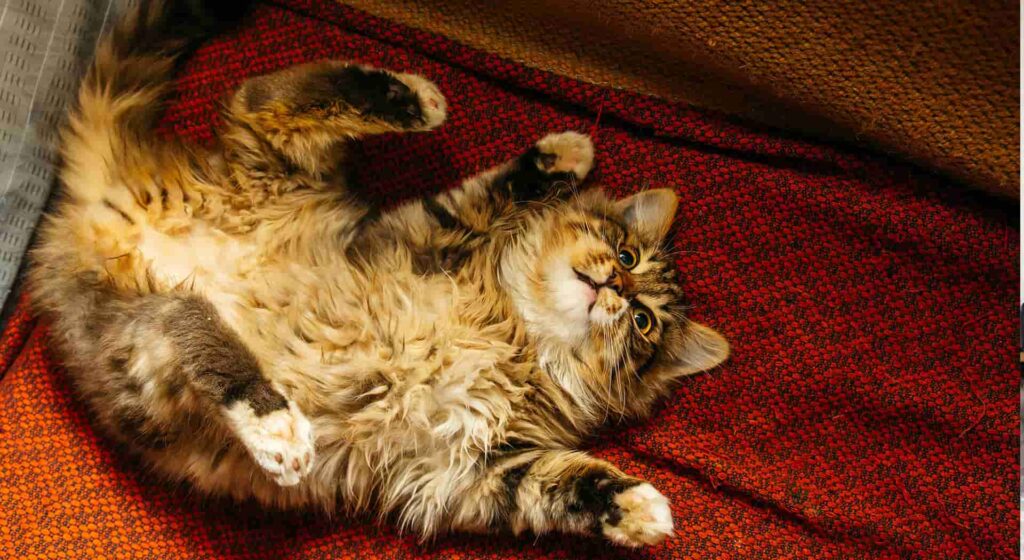
Maine Coons are prone to spinal and joint issues mainly due to their size. Spinal and joint issues can affect the mobility and comfort of the cat. Some of the most common spinal and joint problems in Maine Coon cats include:
- Intervertebral disc disease (IVDD)
- Degenerative myelopathy (DM):
- Hip dysplasia
- Osteoarthritis
Signs and Symptoms
- Limping and pain
- Difficulty jumping or climbing
- Reluctance to move
- Stiffness
- Swelling
- Changes in gait
Preventive Care:
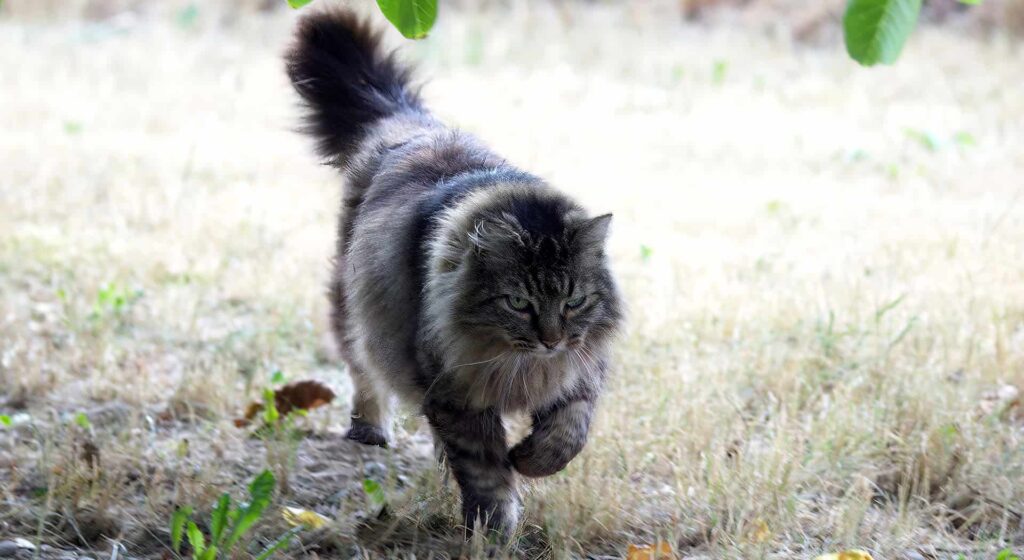
Preventing these issues involves:
- Maintaining a healthy weight to reduce joint strain.
- Providing regular low-impact exercise.
- Feeding a healthy diet that supports bone and joint health and using joint supplements under veterinary guidance.
Managing the Problem:
If a Maine Coon cat is experiencing spinal or joint problems, a veterinarian can recommend pain management strategies, such as medication, supplements, physical therapy and hydrotherapy. In severe cases, surgical options might be considered. Regular veterinary check-ups are essential for monitoring and adjusting the treatment plan as needed.
Allergies
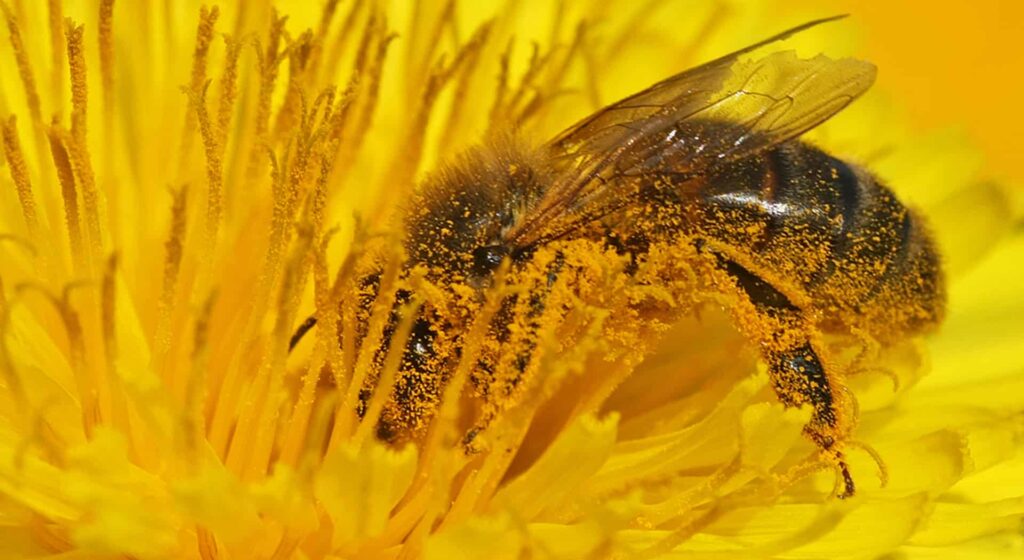
Maine Coon cats can be susceptible to allergies. Common allergens for Maine Coon cats include:
- Pollen: Cats can be allergic to pollen from trees, grasses, and flowers.
- Dust mites: Dust mites are little insects that reside in dust. They are a common allergen for both humans and cats.
- Food: Cats can be allergic to certain foods, such as beef, chicken, fish, dairy products, and eggs.
- Fleas: Flea bites can cause an allergic reaction in cats.
- Environmental chemicals: Cats can be allergic to certain environmental chemicals, such as perfumes, cleaning products, and pesticides.
Signs and Symptoms
- Itchy skin
- Redness
- Swelling
- Hair loss
- Sneezing
- Eye problems such as watery eyes, conjunctivitis and keratitis
- Respiratory problems such as asthma and bronchitis.
- Digestive issues such as vomiting and diarrhoea.
- Behavioural problems such as aggression and anxiety
Preventive Care:
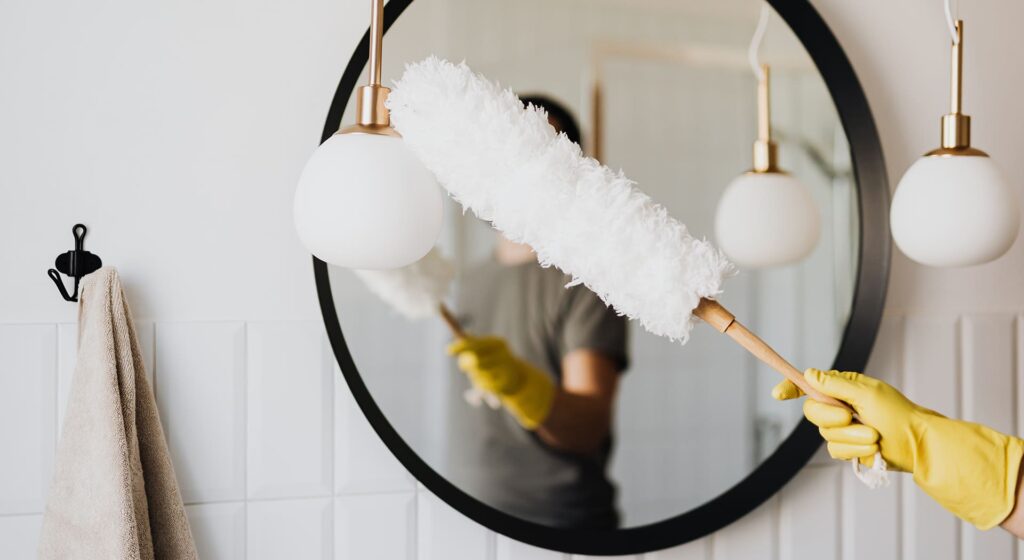
Preventing allergies involves minimizing exposure to potential allergens such as pollen, dust, certain foods, and other environmental factors. Maintaining a clean living environment and regular grooming can help reduce allergen exposure.
Managing the Problem:
If a Maine Coon cat has allergies, identifying the specific allergen is important. Treatment might involve allergen avoidance, hypoallergenic diets, medications to alleviate symptoms, or allergy shots (immunotherapy). Consultation with a veterinarian is crucial for accurate diagnosis and appropriate management.
Urinary Tract Infections in Maine Coon Cats
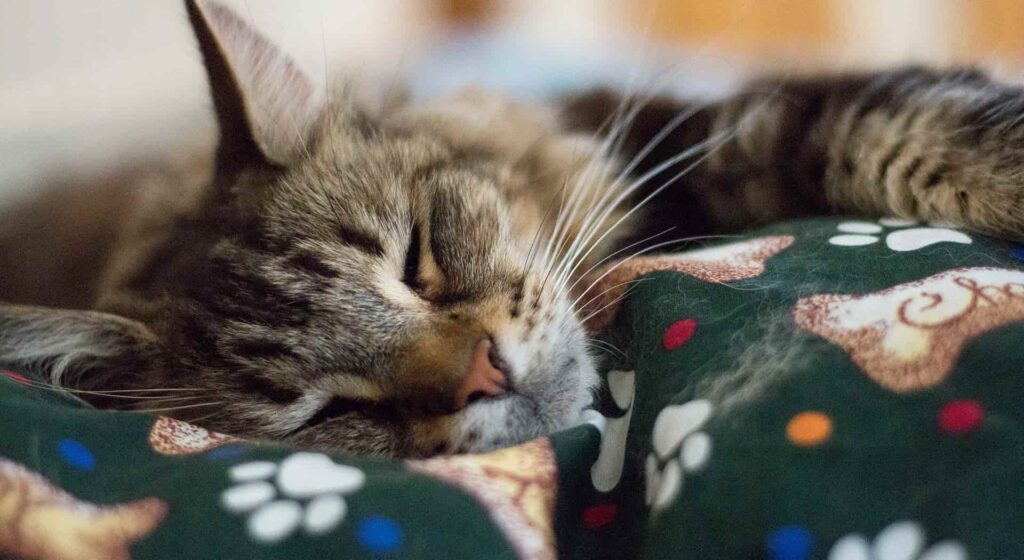
Urinary tract infections are a common problem in cats of all ages, but they are more common in male cats. UTIs occur when bacteria enter the urinary tract, reside there and multiply. This process causes inflammation, bladder infection, and infection of the urethra or kidneys.
Signs and symptoms
- Frequent urination
- Painful urination (vocalization or discomfort during urination)
- Blood in the urine
- Foul-smelling urine
- Urinating outside the litter box
- Increased thirst
- Loss of appetite
Preventive Care:
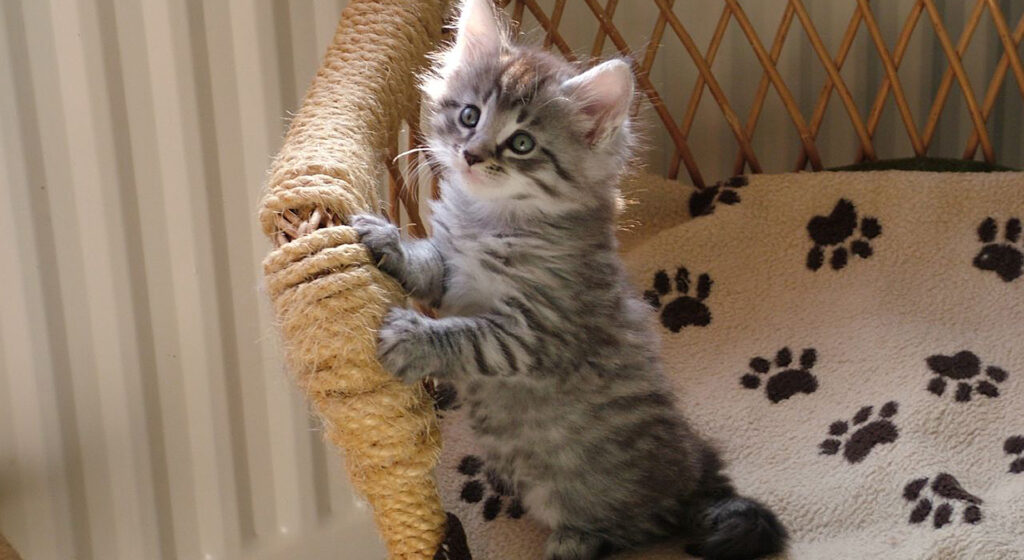
- Ensuring your cat has access to clean, fresh water
- Feeding a balanced diet
- Maintain good litter box hygiene
- Take your cat to the vet for regular check-ups
Managing the Problem:
If your Maine Coon cat has been diagnosed with UTI, the veterinarian will prescribe medication to treat the infection. Therapy may include antibiotics or pain medication. Completing the entire antibiotic course is crucial, even if the cat’s symptoms improve early. Proper hydration is also essential during recovery. You can help speed the recovery by ensuring the cat drinks plenty of water and their litter box is clean. A Maine Coon can recover completely from UTI, however, repeated infections are possible, so make sure to take preventive measures.
Hearing Loss
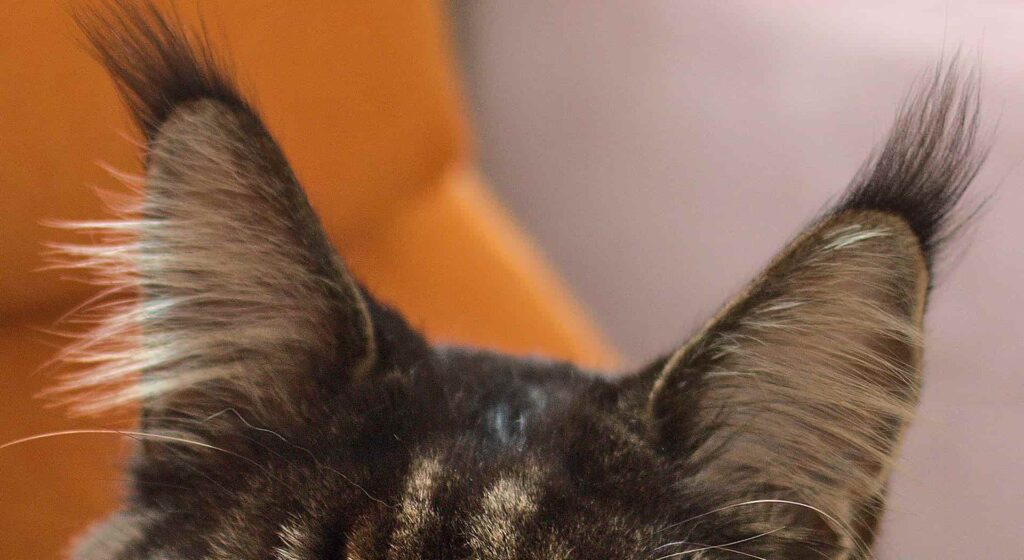
Hearing loss is another health concern in Maine Coon cats. It can manifest as a partial or complete inability to hear sounds. Hearing damage can occur due to various factors, including age, genetics, ear infection and medical conditions like tumours.
Signs and Symptoms:
- Not responding to sounds
- Loud vocalizations
- Disorientation
- Change in behaviour and aggression
Some of these signs can also indicate other health issues, so it’s crucial to consult a veterinarian for a proper evaluation.]
Preventive Care
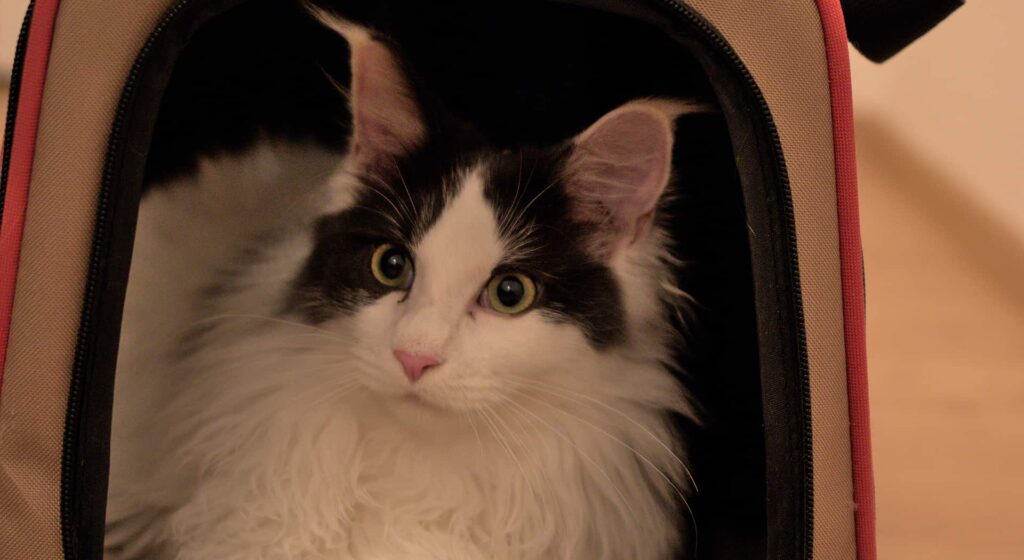
Preventing age-related hearing loss may not be possible, but responsible breeding practices can help reduce the risk of genetic hearing issues. Protecting Maine Coon cats from exposure to loud noises and potential ear infections can also help preserve their hearing.
Managing the Problem
If a Maine Coon cat experiences hearing loss, there’s no cure, but there are ways to manage their condition. Ensure the cat’s living environment is safe and comfortable, and avoid startling them. Visual cues can help with communication. Regular veterinary check-ups can help monitor their overall health and address related issues like ear infections.
Patellar Luxation
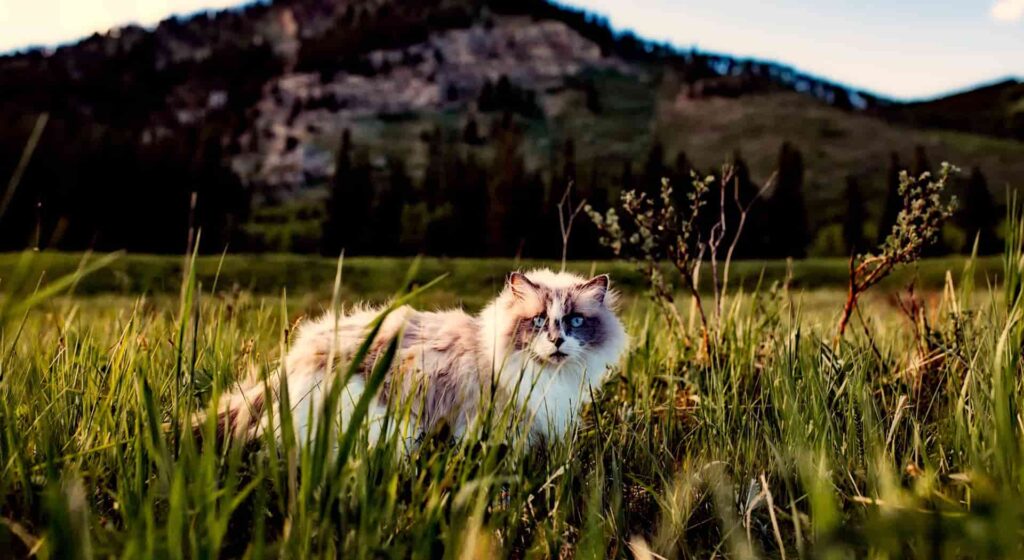
Patellar luxation is a common orthopaedic condition in Maine Coon cats. It occurs when the kneecap (patella) dislocates from its normal position within the femur groove (thigh bone). This displacement can be temporary or permanent, affecting one or both knees. The severity of the condition can range from mild to severe, caused by genetic factors, trauma, or congenital abnormalities.
Signs and Symptoms
- Intermittent lameness or skipping in the affected leg
- Tendency to hold the affected leg off the ground
- Pain or discomfort
- Difficulty extending or flexing the leg
Preventive Care
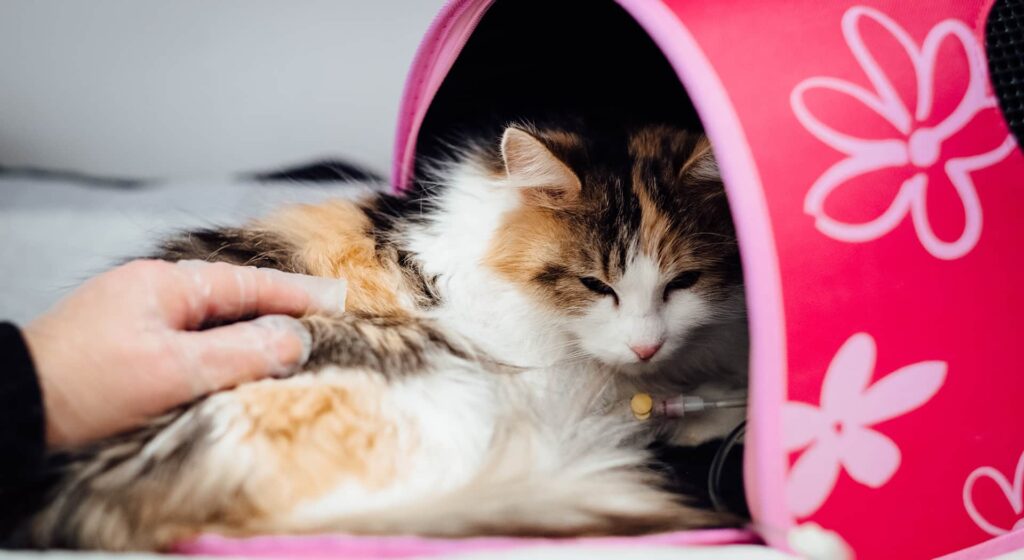
Preventing patellar luxation may not always be possible, especially if it has a genetic component. Additionally, maintaining a healthy weight, feeding a healthy diet and supporting the organism with bone and joint supplements can help reduce the strain on joints and potentially lessen the likelihood of luxation.
Managing the Problem
If a Maine Coon cat has patellar luxation, management can involve different approaches depending on the severity:
- Conservative Management: For mild cases, the veterinarian may recommend weight management, low-impact exercise, and joint supplements to alleviate discomfort.
- Surgical Intervention: In more severe cases or if conservative methods don’t provide relief, surgery might be necessary to correct the luxation and stabilize the kneecap.
It’s of utmost importance to consult a veterinarian to determine the appropriate management plan for a Maine Coon cat with patellar luxation. Regular monitoring of the condition can ensure comfort and mobility.
Conclusion
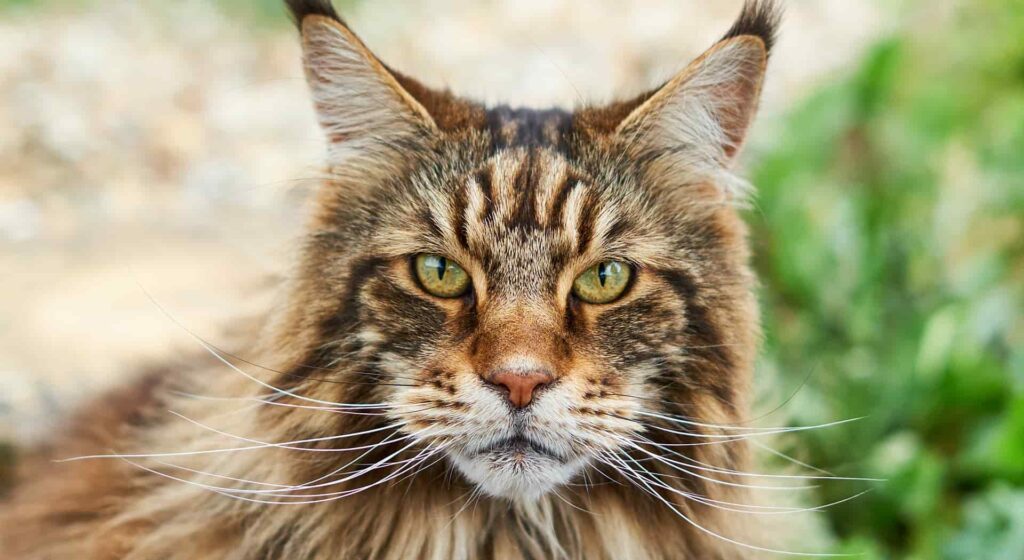
Like all living beings, Maine Coons can face health challenges. Some of these health challenges can be hereditary, and some result from an inappropriate diet and lifestyle. To ensure the long, vibrant life of your Maine Coon and bolster their well-being, the focus should be on both nature and nurture.
Responsible Breeding Practices:
Though Maine Coons are healthy and sturdy, they can suffer from genetic disorders that lead to common health issues in the breed. Therefore, the significance of responsible breeding practices must be addressed. These practices help reduce the risk of hereditary conditions. Supporting ethical breeders who prioritize health and genetics contributes to the well-being of future Maine Coon generations.
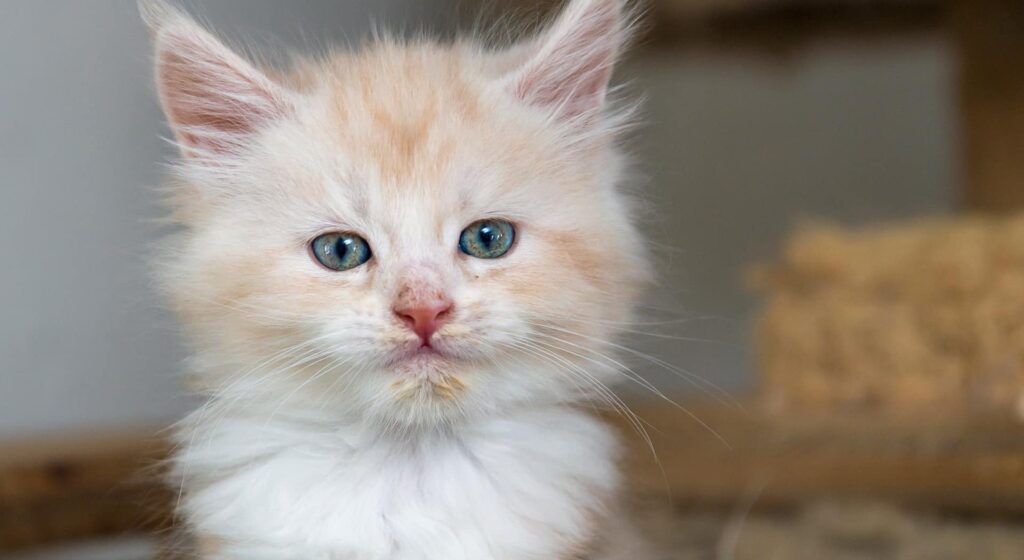
Regular Veterinary Check-Ups:
The value of regular veterinary check-ups and health screenings cannot be overstated. Just as we prioritize our own health with doctor visits, our Maine Coon companions deserve the same attentive care. Routine vet appointments can detect health issues early when they are most treatable, allowing your cat to thrive.
Empowerment through Knowledge:
By gaining insights into common Maine Coon health issues and their prevention, you become a more informed and attentive Maine Coon cat owner. Being informed allows you to make good decisions that positively impact your beloved companion’s life.
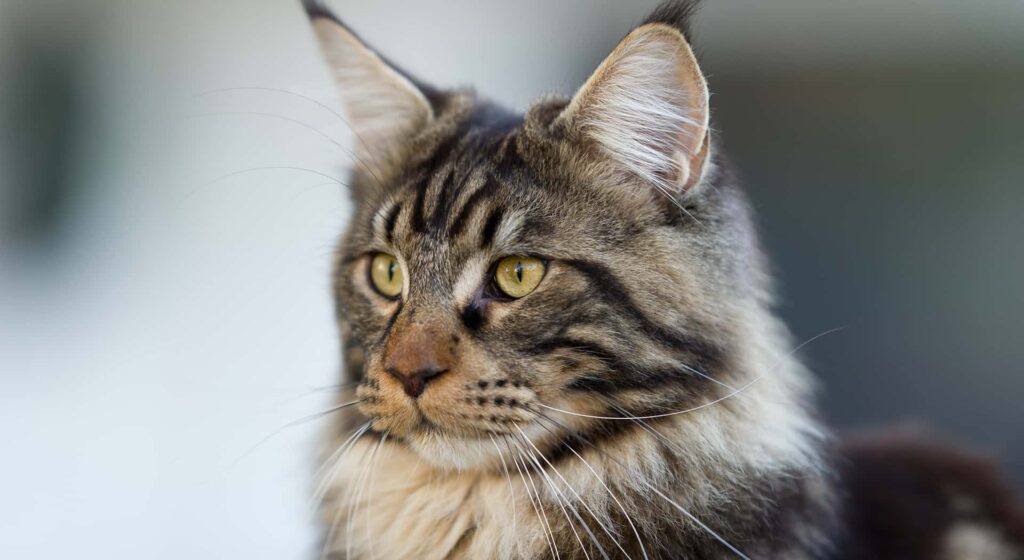
Empathy and Compassionate Care:
Our connection with our Maine Coon cats transcends the physical. Embracing emotional support and a holistic approach to their care enhance the cat-owner bond. Understanding their unique needs, providing comfort, and being attuned to their emotional well-being enriches both their lives and ours.
Related Posts
The Complete Guide to Maine Coon Cats
